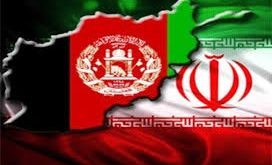Al-Arabia – Media outlets and research centers of the world write a lot about Iran’s expansionary policies in the Middle East. In fact, Iran’s hegemonic tendencies in the region are a matter of serious concern and should be studied in-depth.
However, few in the global media and the wider research community pay adequate attention to Iran’s growing interference in South Caucasus. This region has three important former Soviet republics: Georgia — which has complicated relations with Russia and has taken the path of European integration; Christian Armenia — which is an ally of Russia, Turkey and Israel as well as has the highest percentage of Shiite population after Iran – and secular Azerbaijan.
Missionary influence
Each of these countries is of specific interest for Tehran. Iranian authorities have to act selectively and more carefully than they did in the Middle East, for a number of reasons.
This article focuses on Iranian approach towards Georgia, which is a small country in South Caucasus. According to official data in 2014, the population of Georgia (without the provinces, which are not controlled by Tbilisi) officially stands at 3.7 million..
There are, mainly two Muslim ethnicities in Georgia – Azerbaijanis, who live in the South of Georgia, on the border with Azerbaijan and a certain part of Ajarians, who live in the autonomous republic of Ajaria.
Iranians have their eyes on Azerbaijani Georgians, majority of whom profess the Shiite sect while s smaller section follows Sunni doctrine. It is noteworthy that Azerbaijanis are second ethnic group in the country only after the Georgians.
Iranian activities in Borchali — which is a Georgian region with high concentration of Azerbaijani population — has been blatantly conspicuous since the last ten years. Some Azerbaijanis and Georgians are seriously concerned about Iranian missionary and promotional activities and its consequences. Today, there are some tensions between Azerbaijanis influenced by Iranian propaganda and Azerbaijani Sunnis, who don’t accept the Iranian version of Shiism.
Iranian influence lies primarily in organizing various free training and schools, sending young people to Iran to receive religious education, publishing pro-Iranian promotional literature (part of which is sent to Azerbaijan), financing activities of various pro-Iranian organizations (Ahl ul-Bayt, Alul Bayt, Ali Hikmet etc.) and organizing events related to Ashura.
In addition, religious preachers from Iran who deliver pro-Iranian teachings are not always sermons of peace. These preachers are increasing their presence in Azerbaijani Mosques in Georgia. There are also accusations against Iran of using Georgia as its route for delivering drugs to Europe.
Pro-Iranian websites in Azerbaijani and Georgian languages are also operating in the region. I can give two examples of such websites – ahlibeyt.ge, mgeo.ge. Both websites are registered in the Georgian domain zone and both of them are of poor quality (this is a common feature of Iranian propaganda websites operating in the South Caucasus), however, propaganda news and articles can be found on both websites.
We should also consider the attitude of Georgia’s authorities towards these processes. Obviously Iran couldn’t have developed such activity without a tacit acceptance by Georgian authorities. It is noteworthy that in 2011 the Georgian authorities established the “Council of Muslims of Georgia”, which is a non-governmental organization whose stated objective is “to monitor activities of Islamic communities and Mosques in the country”. Before this, Mosques were under the patronage of the Caucasus Muslims Office with the centre in Baku (Azerbaijan). In most cases this patronage was nominal.
In cohorts with Georgian authorities
In Baku this step was treated as an attempt by authorities of Georgia to drive a wedge between Muslims of Azerbaijan and Georgia. It is noteworthy that the number of Iranian clerics has increased dramatically since 2011 and there is a surge in the activity of the Iranian missionary involvement among Shiites in Georgia.
Clearly, the authorities of Georgia have taken this step in order to minimize the possible impact of Azerbaijan on Azerbaijani community in Georgia and to undermine the credibility of the Caucasus Muslims Office in Georgia. Nevertheless, let’s not forget that the replacement of moderate, often apolitical clerics by rabid apologists of Iran may lead to problems which will directly threaten future stability of Georgia.
Unlike Iranian or deeply pro-Iranian clerics, members of Azerbaijani Shiite clergy have never given anti-Semitic, extremely radical speeches and extremist political appeals. I think that vigorous Iranian missionary activities may pose problem for Georgia, a country which took the path of active European Integration.
In March 2017, citizens of Georgia were granted a visa-free entry to EU. This opportunity may be used also by the citizens of Georgia, who have been influenced by the Iranian propaganda and received religious education in Iran. This is the matter of concern. That essentially means free movement of Iranian agents around EU. And if Tbilisi turns a blind eye on it, I believe that the West such developments in Georgia seriously.
Busting sanctions through Georgia
Georgia is also interesting for Tehran from the standpoint of a “back door” channel for evading international sanctions imposed on Iran. Since the imposition of the first sanctions, Iranian authorities have built an entire infrastructure, covering several countries and channels for circumventing sanctions. Georgia is one such country.
However, the matter of Iran’s economic expansion in the South Caucasus is not that simple. There is a general feeling in certain circles in the West that Moscow and Tehran are allies, but in fact this is not entirely true. Russia tries to fend off Iranian sway and marginalizes Tehran on a range of issues. One such area of rivalry is South Caucasus. In fact, Moscow is currently trying to discourage Tehran from implementing major economic projects.
In general, Iranian activities in Georgia, both economic and missionary, should be viewed in the context of Iran’s regional strategy for expanding and strengthening its influence in the region and around the world.
__________
Ali Hajizade is a political analyst and founder editor in chief of thegreatmiddleeast.com. He tweets @AHajizade
 Shabtabnews In this dark night, I have lost my way – Arise from a corner, oh you the star of guidance.
Shabtabnews In this dark night, I have lost my way – Arise from a corner, oh you the star of guidance.



